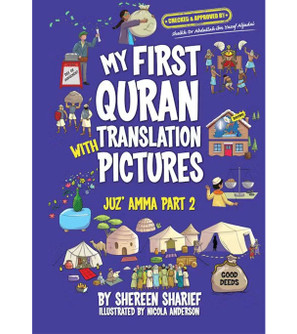What does colloquialism mean?
Colloquialism Meaning
Words change and evolve all the time as a result of writing and speech, resulting in a rich and diverse lexicon. Colloquialisms are words and expressions that have become ordinary in a particular language, geographic location, or historical era. Authors employ colloquialisms to give their characters individuality and realism.
What Is Colloquial Language?
A colloquialism is a term or statement that is part of the informal language used in casual conversation. The term comes from the Latin word colloquium, which means "conversation" Certain words and idioms acquire colloquial connotations through frequent use: for example, the term "wicked" implies "evil," yet it may also mean "good." For instance, "the movie was wicked."
What Is the Distinction Between Colloquialism, Slang, and Jargon?
There are various types of informal speech, such as colloquialisms, slang, and jargon. Slang and jargon are exclusive to certain groups, whereas colloquial phrases are used by individuals within a geographic region. Slang terms are one-of-a-kind phrases developed by a particular culture or social group that quickly acquire momentum and become widely used. Slang can refer to new words, words that have been abbreviated or changed, or words that have taken on a meaning other than their original definition. Slang words include "hip," which means "trendy," and "throw shade," which means to criticize someone.
What Is Colloquial Arabic?
In contrast to modern standard Arabic or MSA, there is another variety of Arabic found outside of academic contexts, diplomatic contacts, and the media. Colloquial Arabic is the Arabic dialect unique to each region, and while most of its vocabulary and grammatical origins are derived from the MSA, it also has its own lexicon as a result of its history. As a result, several variations of colloquial Arabic exist within the same nation and even within the same region. The Arabic dialects have varied and diversified since ancient times, that is, before the advent of Islam. For example, the Egyptian dialect in Egypt, the Emirati dialect in the Emirates, the Jordanian dialect in Jordan, and so on. The difference that distinguishes these countries in their Arabic dialects, is their difference between the East and the West. The difference between these dialects lies in how the letters are pronounced And their exits. For example, the letter “Qaf” is pronounced by replacing it with “Kaf” in the Bedouins dialect, or replacing it with hamza in Egypt and Syria, in addition to slight differences in other letters.
Classicism and Colloquial Arabic
There are elements of classicism that can be found in colloquial Arabic. Some religious words, such as "salat," which means "prayer," are only present in ancient Arabic and are solely used for religious purposes. This has altered significantly because such and other words are now used in colloquial Arabic without being considered to be violating the norms of the Arabic language. Some grammatical rules inherited from classicism are utilized in various dialects of Arabic, including colloquial Arabic. The majority of current versions of Arabic follow the grammatical norms established by the founders of classicism (Freeman, 1994). Although each Arabic-speaking region has its own dialect of colloquial Arabic, there is one trait that all of these dialects share. Most of them maintain some forms of terms originating from classicism or just alter them slightly so that people from all regions may comprehend them even if they do not comprehend other words from a specific dialect. Classicism has also had a significant impact on the pronunciation of terms used in colloquial Arabic. The word ordering in sentence patterns is also influenced by classicism in Arabic dialects.
The Origins of Colloquial Arabic
The origins of colloquial Arabic are not determined by date or era. We do not know exactly when the vernacular dialect arose. Linguists agreed on a specific period that the emergence of the vernacular dialect began since the spread of Islam in the universe. This is due to Islamic conquests that led to the mixing of tribes in each other, and the non-Arabs and Arabs mixed. They mentioned that the beginning of this was mostly in the era of the Companions (Sahaba). However, some researchers studied the history of the vernacular dialect, and they went to the fact that the beginning of the emergence of the vernacular dialect was in the era of weakness during the days of the Mamluk state. Despite the differences of scholars in their opinions, they all agree that dialects have appeared since ancient times. Since the beginning of the emergence of Islam.
Colloquialism Examples
Here are some colloquial expressions used in colloquial Egyptian Arabic. The reason why we chose the Egyptian dialect is that almost any Arab can understand it even if they don’t speak it themselves.
I miss you
Classical (Fusha): Ishtaqtu-lak Colloquial: Wahashteny
How are you?
Classical (Fusha): Kayfa Halak? Colloquial: Ezayak/ Ezayyek (feminine)
The weather is bad today
Classical (Fusha): al-Jawu Sayi’ al-Yawm Colloquial: el-Gaw Wehesh en-Naharda
Do you speak English?
Classical (Fusha): Hal Tatahadath al-Injlizeya? Colloquial: Betetkalem (fem: Betekalemi) Englizy?
Colloquial Arabic Translator
If you’re looking for a good colloquial Arabic translator, U Dictionary is your way to go. The U-dictionary application was able to collect about 100 million downloads via Google Play, with its features and characteristics that make it an ideal solution for people who want to translate from colloquial Arabic to any other language. The voice translation tool also has a magical feature, which is that you do not have to speak in classical Arabic in order for the application to understand and translate what you want. What is the news?” The application translates it directly into the language of your choice. The "U Dictionary" application also allows you to translate using the camera, where you can take a picture of any written data or signs and translate it immediately through the application. The application supports it. For example, if you are in a restaurant and want to order lunch and do not know how to read the menu, all you have to do is open the image translation tool to translate the entire contents of the menu into your language, as well as street signs or traffic instructions. Do you still need some help with your Arabic learning? Check Madina Arabic learning material on the website and order all the books you need from the Madina Store online.
















